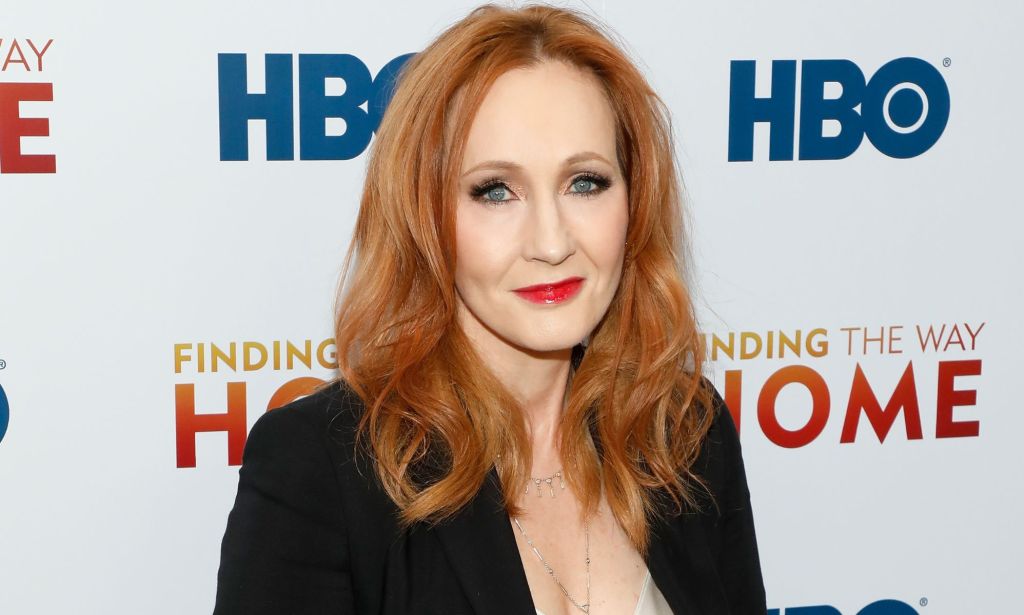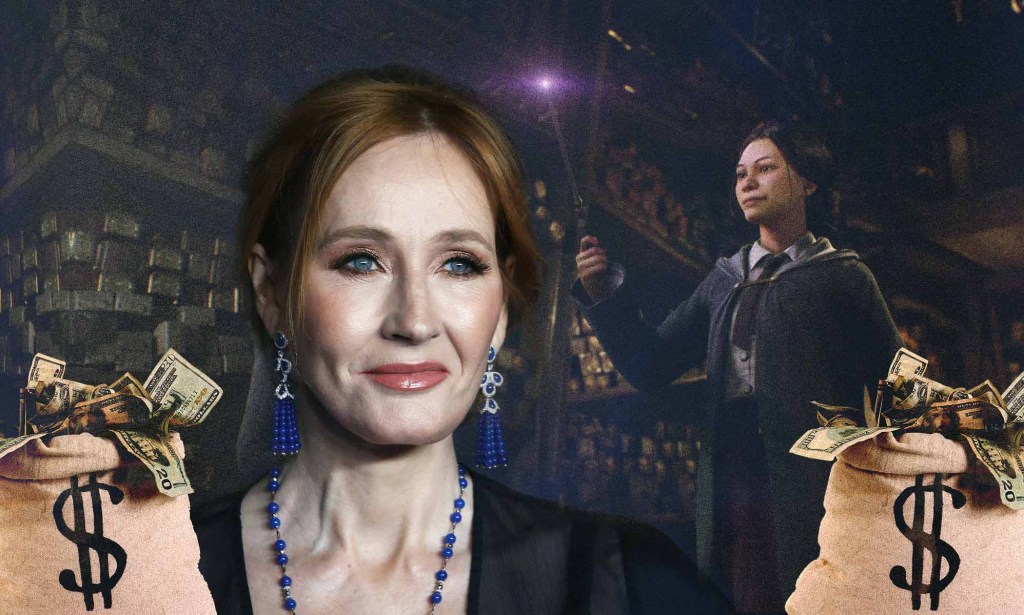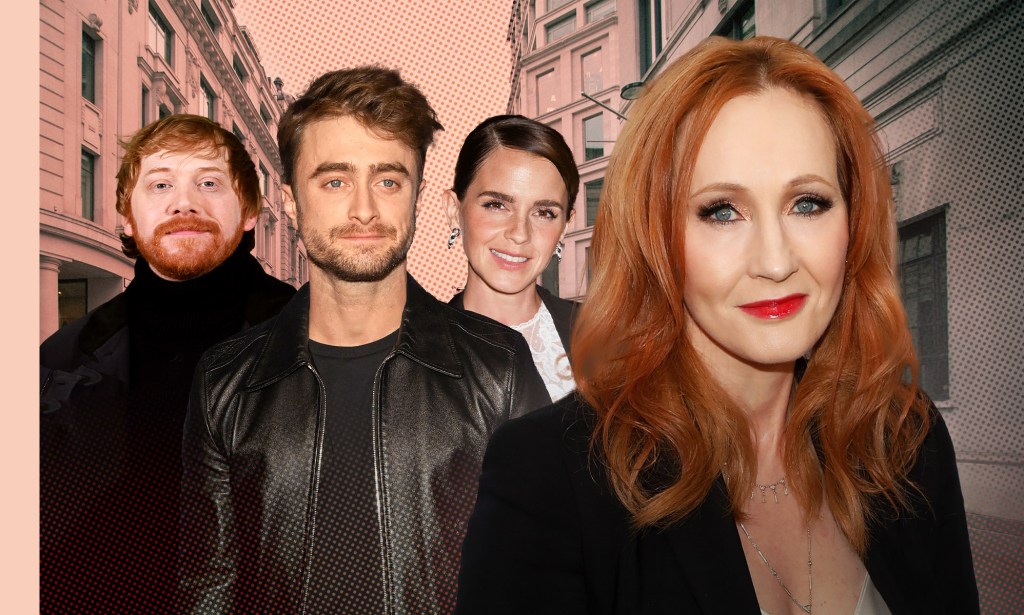How is JK Rowling involved in Max’s Harry Potter TV series?

JK Rowling has stated that she would prefer ‘two years’ in jail over using a trans person’s correct pronouns. (Getty)
The news that the Harry Potter books are set to be turned into a TV series by HBO’s newly-rebranded streaming service Max has reignited the conversation around the controversial legacy of author JK Rowling.
Plans for a “decade-long” TV adaptation of the seven-book series were confirmed by Warner Bros. Discovery CEO David Zaslav on Wednesday (12 April), dividing Harry Potter readers and fans of the hit film adaptations starring Daniel Radcliffe, Emma Watson and Rupert Grint.
Rowling’s personal involvement in the series – which will feature an all-new cast – has sparked also renewed backlash from trans rights campaigners and allies given her history of ‘gender-critical’ tweets and comments.

Is JK Rowling involved in the Harry Potter TV series and will she profit from it?
In short, yes and yes.
Rowling will participate in the creation of Max’s Harry Potter TV series as an executive producer, alongside Neil Blair and Ruth Kenley-Letts. David Heyman, who produced all eight of the films, is reportedly also in talks to take on an executive producer role.
The role of an executive producer varies depending on the project and a variety of factors, but generally involves overseeing the series’ journey from script to screen, with possible influence over casting decisions and writing.
As the author of Harry Potter, Rowling, 57, also owns the rights to the franchise’s intellectual property, meaning that she earns royalties based on revenue generated from sales of the book, Harry Potter merchandise, the films, the Warner Brothers theme park, and the recently-released Hogwarts Legacy, which many trans people and allies chose to boycott.
Generally, executive producers can expect to earn a salary from their position, and often a percentage of a project’s profits.

Chairman and CEO of HBO and Max Content, Casey Bloys, refused to be drawn on the topic of the Rowling’s views following the announcement of Max’s TV adaptation, Deadline reports, but stated that the series creator’s “insights will be helpful” in making the show.
“JK is a very online conversation… it’s very nuanced and complicated and not something we’re going to get into,” said Bloys. “Our priority is what’s onscreen. The Harry Potter story is incredibly affirmative and positive about love and acceptance, and that’s our priority, what’s on the screen.”
Rowling herself has said of the upcoming TV series: “Max’s commitment to preserving the integrity of my books is important to me, and I’m looking forward to being part of this new adaptation which will allow for a degree of depth and detail only afforded by a long-form television series.”
A lot has changed since the first Harry Potter film was released in 2001
While the upcoming TV series will feature an all-new cast, multiple stars of the Harry Potter films – the last of which, Deathly Hallows Part 2, was released in 2011 – have distanced themselves from Rowling since she first began commenting on trans people in 2020, with Daniel Radcliffe, Emma Watson and Rupert Grint all declaring that “trans women are women”.

In April 2023, Radcliffe met with a group of young trans people for a video series with LGBTQ+ youth charity The Trevor Project, where the actor urged parents to “trust kids to tell us who they are”.
Other Potter stars who’ve made a point of championing trans equality include Bonnie Wright (who played Ginny Weasley), Katie Leung (Cho Chang) and Chris Rankin (Percy Weasley).
The ability of many to separate the fictional wizarding world of Harry Potter from its creator is likely to become even harder after Rowling directly compared trans rights activists to the books’ murderous Death Eaters in March 2023.
In episode 5 of The Witch Trials of JK Rowling, a podcast series hosted by ex-Westboro Baptist Church member Megan Phelps-Roper which centred on Rowling’s ‘gender-critical’ views, the writer was asked what she would say to people who say that she’s become “like the villains in your books”.

Rowling replied: “I suppose the thing I would say above all to those who seek to tell me that I don’t understand my own books, I will say this: some of you have not understood the books.
“The Death Eaters claimed, “We have been made to live in secret and now is our time. And any who stand in our way must be destroyed. If you disagree with us, you must die.” They demonise and dehumanise those who are not like them.”
She continued: “I am fighting what I see as a powerful, insidious, misogynistic movement that I think has gained huge purchase in very influential areas of society. I do not see this particular movement as either benign or powerless.
“So I’m afraid I stand with the women who are fighting to be heard against threats of loss of livelihood and threats to their personal safety.”

